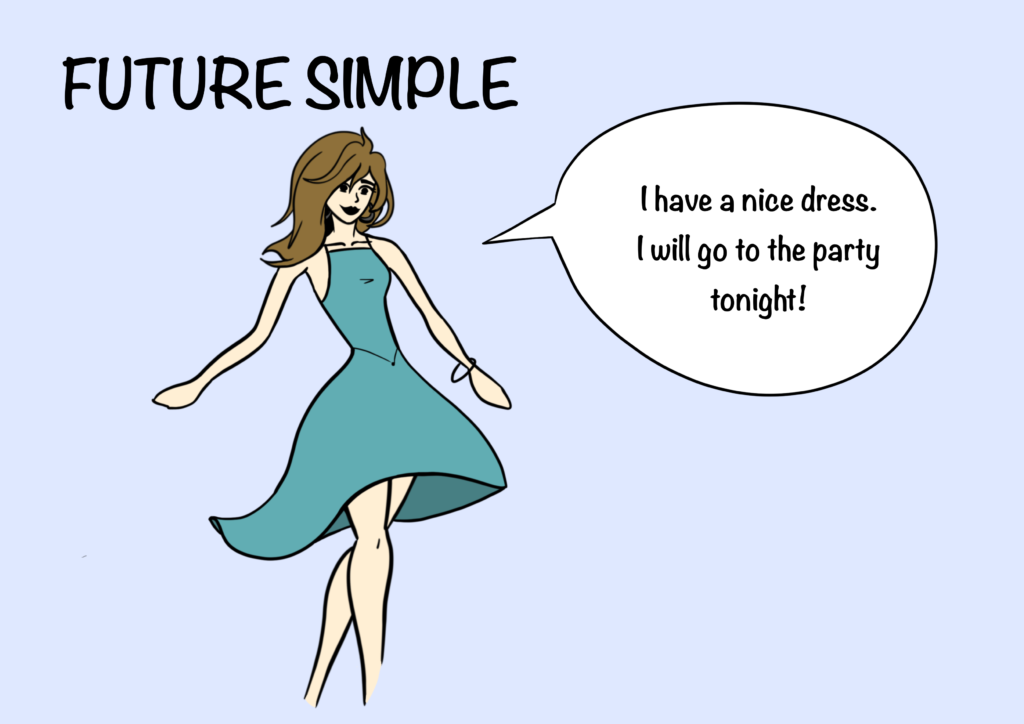The simple future is a tense that is used to talk about actions or conditions that will begin and end in the future.

Forming sentences with Future Simple
Future Simple is formed by the following structure:
Subject + auxiliary will + main verb
Forming affirmative sentences
| I | will | drive | to the airport. |
| You | will | drive | to the airport. |
| It | will | drive | to the airport. |
| We | will | drive | to the airport. |
| They | will | drive | to the airport. |
Forming negative sentences
| I | will | not | drive | to the airport. |
| You | will | not | drive | to the airport. |
| It | will | not | drive | to the airport. |
| We | will | not | drive | to the airport. |
| They | will | not | drive | to the airport. |
Forming questions
| Will | I | drive | to the airport? |
| Will | you | drive | to the airport? |
| Will | it | drive | to the airport? |
| Will | we | drive | to the airport? |
| Will | they | drive | to the airport? |
Contraction with Future Simple
When we use the Future Simple in speaking and informal writing, we often use contractions in affirmative and negative sentences:
| affirmative | negative |
| I´ll | I won´t |
| You´ll | You won´t |
| He´ll she´ll it´ll | He won´t she won´t it won´t |
| We´ll | We won´t |
| They´ll | They won´t |
Using Future Simple
Use 1 Unplanned future
Future Simple tense is used when there is no plan or decision to do something before we speak.

Examples:
„I need to be at the airport tomorrow at 5AM“ „I will take you.“
Maybe I will go to a pub tonight. I need some distraction!
I’ll pay for the tickets by credit card.
I’ll go to the party tonight!


Use 2 Prediction
Future Simple tense is also used to make a prediction about the future. We often use it when we talk about something that we think will happen.
Examples:
It will snow in the evening.
Do you think you will get the job?
I think I’ll go shopping in the evening.
I don’t think we will go on holiday next year. We don’t have the money.

Here are some of the ways we use will:
We also use will to make predictions, talk about decisions, and to make promises, requests and threats.




Expressing future with „going to“
There is another way to express future, with „be going to.” The two forms can sometimes be used interchangeably, but they often express two very different meanings. While will is generally used to express future without making plans, going to is used for talking about planned events.
Examples:
I can´t come. I am going to work. (I cannot come because I am on my way to work or I have to be at work because it is my shift.)
He is going to buy a house next year. (He is planning to buy a house.)

